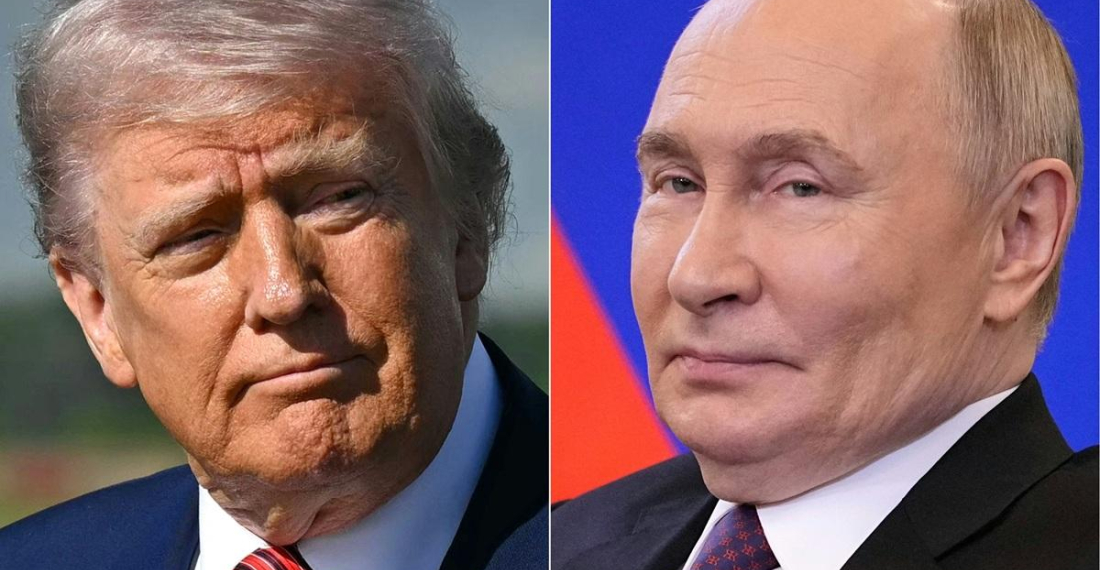Russian glide bombs and ballistic missiles struck a Ukrainian prison and a medical facility overnight as Russia’s relentless strikes killed at least 22 people across the country, officials said on Tuesday 29 July, despite U.S. President Donald Trump’s threat to punish Russia with sanctions and tariffs unless it stops. Trump said on Monday he is giving Russian President Vladimir Putin 10 to 12 days to stop the killing in Ukraine after three years of war, moving up a 50-day deadline he had given the Russian leader two weeks ago. “I’m disappointed in President Putin,” Trump said during a visit to Scotland.
The move meant Trump wants peace efforts to make progress by Aug. 7-9. Trump has repeatedly rebuked Putin for talking about ending the war but continuing to bombard Ukrainian civilians but the Kremlin hasn’t changed its tactics.
Four powerful Russian glide bombs hit a prison in Ukraine’s southeastern Zaporizhzhia region, authorities said, according to AP. They killed at least 17 inmates and wounded more than 80 others, officials said.
In the Dnipro region of central Ukraine, authorities said Russian missiles partially destroyed a three-story building and damaged nearby medical facilities, including a maternity hospital and a city hospital ward. Officials said at least four people were killed, including a 23-year-old pregnant woman, and eight were injured.
Ukrainian President Volodymyr Zelenskyy said that across the country, 22 people were killed in Russian strikes on 73 cities, towns and villages. “These were conscious, deliberate strikes, not accidental,” Zelenskyy said on Telegram.
Zelenskyy welcomed Trump’s move on the timeline. “Everyone needs peace — Ukraine, Europe, the United States and responsible leaders across the globe,” Zelenskyy wrote in a post on Telegram. “Everyone except Russia.”
The Kremlin pushed back, with a top Putin lieutenant warning Trump against “playing the ultimatum game with Russia.” “Russia isn’t Israel or even Iran,” former president Dmitry Medvedev, who is deputy head of the country’s Security Council, wrote on social platform X. “Each new ultimatum is a threat and a step towards war. Not between Russia and Ukraine, but with his own country,” Medvedev said.
Since Russia’s full-scale invasion of its neighbour, the Kremlin has warned Kyiv’s Western backers that their involvement could end up broadening the war to NATO countries.
“Kremlin officials continue to frame Russia as in direct geopolitical confrontation with the West in order to generate domestic support for the war in Ukraine and future Russian aggression against NATO,” the Institute for the Study of War, a Washington think tank, said on Monday, according to AP.
The Ukrainian air force said Russia launched two Iskander-M ballistic missiles along with 37 Shahed-type strike drones and decoys at Ukraine overnight. It said 32 Shahed drones were intercepted or neutralized by Ukrainian air defenses.
The Russian attack close to midnight Monday hit the Bilenkivska Correctional Facility with glide bombs, according to the State Criminal Executive Service of Ukraine. Glide bombs, which are Soviet-era bombs retrofitted with retractable fins and guidance systems, have been laying waste to cities in eastern Ukraine, where the Russian army is trying to pierce Ukrainian defenses. The bombs carry up to 3,000 kilograms of explosives.
Ukrainian officials condemned the attack, saying that targeting civilian infrastructure, such as prisons, is a war crime under international conventions. The assault occurred exactly three years after an explosion killed more than 50 people at the Olenivka detention facility in the Russia-occupied Donetsk region.
Ukraine has sought to fight back against Russian strikes by developing its own long-range drone technology, hitting oil depots, weapons plants and disrupting commercial flights. Russia’s Defense Ministry said Tuesday that air defenses downed 74 Ukrainian drones over several regions overnight, including 43 over the Bryansk region.
Yuri Slyusar, the head of the Rostov region said a man in the city of Salsk was killed in a drone attack, which started a fire at the Salsk railway station. Officials said a cargo train was set ablaze at the Salsk station and the railway traffic via Salsk was suspended. Explosions shattered windows in two cars of a passenger train and passengers were evacuated.
Source: commonspace.eu with AP and agencies. Photo: AFP






